Craft Notes
On Pretense, Piss Christ & Pizza
— Susan Sontag, “Project for a Trip to China”
So I would start out with the dictionary definition of pretense, which would be useful actually, because I feel that many people do not know it, but that would be perceived as pretentious; but then I’ve already made the presumption that many don’t know the meaning of pretense, and thus pretentious and so; in fact, the whole premise of this is totally. An obscure quote? Semi-colons? What an ass, like lifting one cheek. Okay so.
I feel that 99% of the time the word pretentious is used in one very general way: to describe something someone doesn’t understand; either the phrasing of a thing, or the reach, the jargon, whatever. Now you might say, well look Reynard sometimes people are acting the fool and so I call them out when I need to call them out. And I feel you on that (also that is a very polite way to speak to me, thank you). It’s the literary equivalent of honking your horn. Some people honk at white space. I like it. Some people do not enjoy cheese. I can not comprehend their decisions. Why should we agree? Nothing says that anywhere. Some words have such totality, it frightens people. They cannot pry the concept from the object, even if the object does not exist in front of them, which is statistically VERY LIKELY.
The problem is most people use their horn for no reason. Most of the time when they say “pretentious” what people mean is “bombastic.” Bombast is inflated speech, using big words for no real reason, other than to sound smart. If the words are not used incorrectly, because they were culled from some thesaurus with passive regard for the range of their meanings, they are usually used in a way that either adds no greater specificity to the sentence or distracts the reader from the intended meaning. We know all this. So yeah, this is not good. But it is not pretentious either. And you don’t need to use your horn so much.
Then there are those times, like when some jerk doesn’t use his blinker, when a writer’s tone is, in your opinion, pretentious. But look, all tones are affected, even those that come naturally. That’s my opinion anyway. And at a certain point, all of it becomes a matter of opinion. Isn’t everything though? One could try to cite every sentence one writes, but one must eventually face the problem of threes, which is who and how and why? Okay, let’s simmer down a bit. I think I was trying to say something here. Maybe I should have written this essay in a satirical style, so as to deflect whatever criticisms a reader might have into the void of chuckledom and “I have a t-shirt that says I’m with stupid, shall I put it on?” Some people think everything on this site is pretentious. The thing is, those people are right.
To pretend is, of course, the very root of all literary and artistic creation. Were it not for pretense, nothing would get done. No one would tell a single story. Let alone write a poem. All literature is pretentious.
To be against pretense is to be against creation.
50. The confusion about what color is, where it is, or whether it is persists despite thousands of years of prodding at the phenomenon. And literally prodding: in his zeal, in the “dark chamber: of his room at Trinity College, Newton at times took to sticking iron rods or sticks in his eyes to produce then analyze his perceptions of color. Children whose vision has been damaged have been known to smash their fingers into their eyes to recreate color sensations that have been lost to them. (That’s the spirit!)
— Maggie Nelson, Bluets
One of the most significant acts of pretense in the last thirty years or so has been this work called Piss Christ by Andres Serrano. The title says it all and maybe for some people that is the problem. I wonder, if it weren’t called that, how many prints Serrano could have sold to believers. The other day an angry fundamentalist Christian managed to “destroy” one of the prints. The media in Europe is using it as an opportunity to take some stabs at the first conservative prime minister in France since the revolution, which is fine, but really the thing was clearly not destroyed; it was a print and it was altered by another artist, illegally.
So anyways it is like a pretty complex work, and oftentimes people get very worked up talking about it, which is of course what makes it so fascinating and thus like, valuable or whatever. The best thing I’ve heard anyone say about it to this day was a Catholic nun/art critic, Sister Wendy Beckett, on PBS, saying that she felt it was a statement on “what we have done to Christ.” But a statement is just a statement. To me, art is something more than that. I mean art as in like a masterpiece or whatever, a real work of art, not that that means anything (I don’t give a shit about meaning) in that sense that it is something some of us can point to and say, hey I think that there is art and maybe someone else says, yes I agree that is some next level shit. I don’t even know that it can be created; it seems more likely that this sort of beauty can only happen. Like the sky, it cannot be produced, but I guess it can be prodded.
And so Piss Christ has, for me, finally become a work of art. I feel that it has transubstantiated from concept to sculpture to photograph to multiple copies of photograph “blessed” by the artist to a photograph physically altered by a human being provoked to violent reaction and thus an event, a performance piece orchestrated by an outsider artist operating under the pretense of religious mania.
Actually, I had always been perplexed as to why the piece had not yet been damaged by this sort of thing (though admittedly, this is just one print). There have been numerous instances over the years, but nothing like this that I know of. It seemed to me as if it were missing a streak of spit, or a glob of red paint flung off in a frenzy. As anyone who has been to a museum can tell you, security is lax at best. I take photos at museums all the time. When a guard tells me something, I act as if I don’t speak English and put my camera away, scoot along. Brian Eno once “pissed” on Duchamp’s toilet. The Scream has been stolen twice.
The great thing about Piss Christ and this event in general, is that the artist has conjured an image that no one could imagine would not be “misunderstood” by Christians as a piece of blasphemy, made with government grant money no less! Amazing. In fact, that is what got it famous—some politician caused a shit storm—it’s been called the first piece of shock art. As an artist, he creates the pretense, this evocation, or provocation if you like, and that is really all it is: a concept that can be reacted to. We see this everyday, of course, in street signs and fire hydrants. I’ve noticed that a lot of insane people seem fine except that they mistake one thing for another, a bus stop, say, for a toilet. Piss Christ is a bit like the Temple Mount: everyone claims it. By which I mean your view is a kind of physicality, the way multiple dimensions can inhabit the same space. A more practical approach would be to say, Do you remember the electromagnetic spectrum? Do you think that’s a pretentious question to ask or is this one even worse?
Of course this view, the view that no views are valid is every bit as ridiculous as saying that all views are. There is no question; there is an object. You can gaze upon the object or you can think about the object, what it means and so on. Or you can engage the object. Of course, this move is disallowed. And for good reason! I don’t want people going around all the art galleries, roughing up the work. That would suck. But if you’ve ever seen an artist interact with a work of, made by someone else, you will know that one of the first impulses she has with the object is to feel the material with the fingers.
So why do I think Piss Christ is different from other works of art in that it wasn’t art until now? Okay so maybe I shouldn’t say it “wasn’t art”—I only mean that in a sense, it was another kind of art, and now it has been fulfilled—it makes more sense now than it did before, in another sense, is what I mean. Now I see it as neither provocation or evocation, but as a pretense.
The point of all this pretense, art and literature and so on, is to provoke a reaction of some kind. Usually this comes in the form of thought, perhaps the thought is written and shared, more often it floats away. What this human has done to Piss Christ is they have commented on it in the only way that seems capable of having any real impact given their situation and such. The visual iconography of the piece superseded all the literature written about it from all the various angles one might imagine. And so the only imaginable comment could come from an alteration to the image itself. Thus an altercation.
Books, of course, are different. It’s hard to pick a fight with a book, which is why geeks love writing them. (Easier online, obviously.) You can burn a book, I guess. People have tried that but it doesn’t seem to have done that much good. Interesting that the Nazi party, the world’s most famous group of book burners, was created by literature. Very specific, “misleading” literature, folklore. The U.N. embassy in Afghanistan was attacked by Muslims protesting the burning of a Qur’an in Florida. People were beheaded. This was what, a couple of weeks ago. This is one of the things religion does to people. It incites violence; it creates misunderstandings. But so does literature. The good news is, both can heal us as well.
Last night I lay in bed thinking something about how for many primitive cultures dancing was so important because pretending to be gods made them exist (the gods and probably themselves too), the way the aborigines believe they must sing up the land otherwise it will not be there for them to walk upon.
For years Maggie Nelson went around telling people she was writing a book about the color blue without actually doing it. Then she did. It is very good and it is called Bluets. I excerpted it earlier. One of the things Maggie Nelson says about color is that no one knows what it is. Her essays remind me of the Microscripts of Robert Walser as well as the work of Tan Lin. What is great about their work is how much they do not tell you that surround the bits they do that are really the most important. I think that is really pretentious (in a totally different way from saying too much). The lack becomes the invention.
For me, all of this is a reminder that the most effective literature in a time of widespread ignorance is the rhetoric of confusion and vagueness. Oh well. At least it will always be true that a picture can say way more than a thousand words.

Pharaohs used to go around defacing all the statues their predecessors put up so that everyone would think they built everything and that they had always been in charge, now their people do the same thing to them
For more of my thoughts on piss in art, see my first ever HTMLGIANT post.
For more on the rhetoric surrounding the piece of piss, the L.A. Times has this.
For more on Maggie Nelson, Kyle Minor did this roundup.
On Pizza
Pizza is a way of saying no I mean okay I mean I don’t care I mean that’s too negative it’s more like I am not concerned.
Pizza is coming at you whether you like it or not.
Pizza is you can lead a pretense to what.
Pizza is I forgot my mantra.
Pizza is do you remember when pizza did not exist no okay good that is the correct answer congrats and stuff.
Pizza is tomorrow and yesterday and also today. All the time is pizza.
Pizza is The Wizard of Oz in black and white.
Pizza is not worried whether or not you consider it a threat because pizza is in control.
Pizza is a goodbye from a mom filmed in IMAX 3-D, chopped & screwed by pizza.
Pizza is America is not good all the time in fact a lot of the time not good is pizza shaking its head its cheeks shaking pizza.
Pizza is a child with no legs in a village in Libya.
Pizza is NATO.
Pizza is what the fuck does nato even do does that even matter since we do what we want no matter what pizza thinks.
Pizza is the yellow brick road was always there open your I’s.
Pizza is all I know about pizza so far. I’m sorry I don’t know more about pizza. I tried to know “all about pizza” but I don’t know enough about pizza yet to fully discuss pizza. Until then I will be in the field, eating pizza, trying to become what.
Tags: andres serrano, bluets, egypt, libya, maggie nelson, NATO, piss christ, pizza, pretend, pretense, there is no pizza

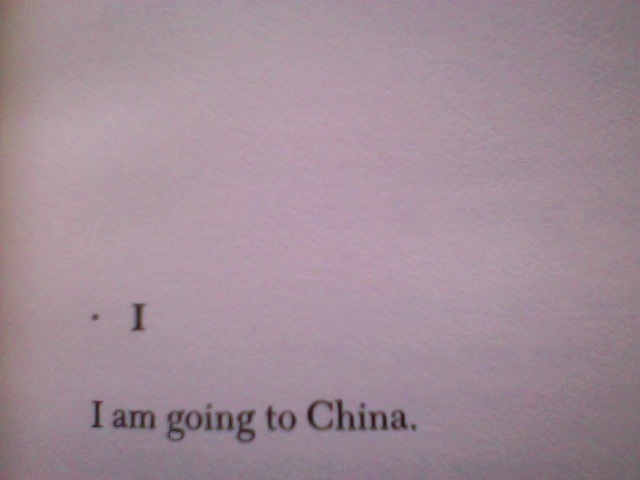
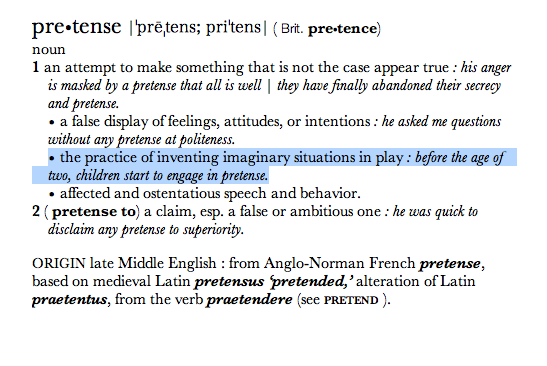

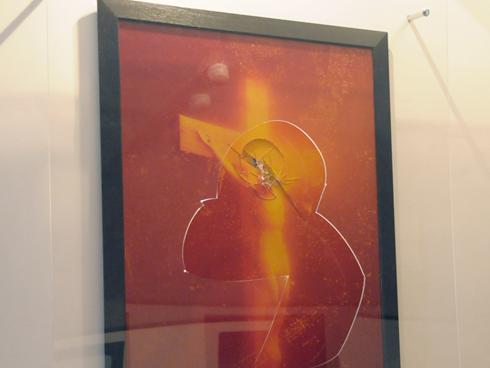
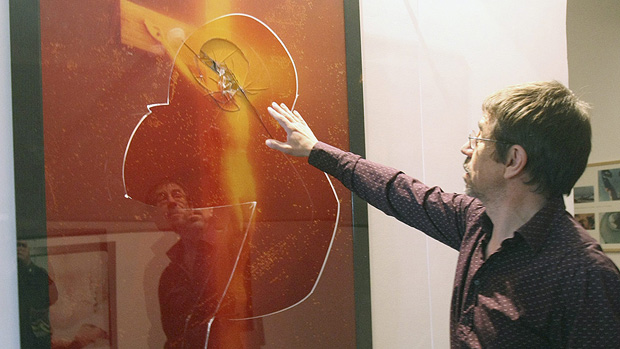
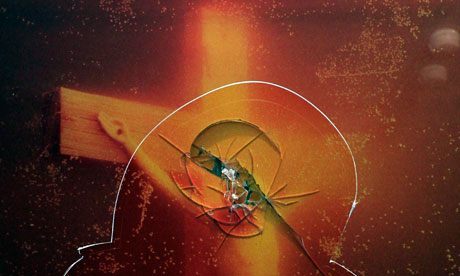
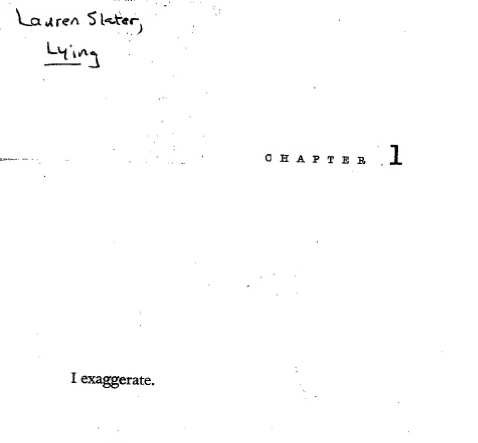
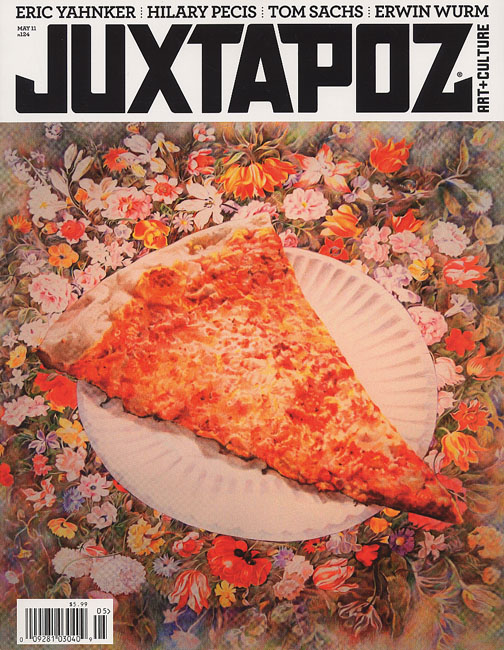
pretentious – Attempting to impress by affecting greater importance or merit than is actually possessed; making an exaggerated outward display; ostentatious, showy. – Oxford English Dictionary Online.
eep! gasp! the charge was sedition, tax evasion, Mohamed floats in a jar of piss, a death sonnet, a dirge, this would take balls like Hitler, or Nietzsche’s editor sister, her sausage-like braids bent up like atrophied turvy commas, believers are a noun of pretense adjectively characterized by assumption of dignity or importance, unable to stand alone, collectives in all cases to be ministered to, their words describe everything that exists, layers of smelt, sardine, anchovy, this is pizza, this is Sicily, don’t never say that one word, that Mafiosi, oh jesus, piss nazarene, said I was not even a man, said I owed him money, said I ought to sell my soul, said I wasn’t funny, I just paid $2 for a coffee and will piss it all away
Isn’t pretension the noun form of pretentious?
A reading “with less pretensions than you might think” said the flyer for the event I attended last night. One minute into the second reading I received a text from my girlfriend: this is not literature. I agreed. I felt a little pretentious. The reader said: She hauled off and socked him in the nose. I opened the book review magazine they placed on the chairs before the event and scanned a review of There Is No Year. It was not a positive review, but the excerpts were good. We left before the bleeding stopped.
didactic — 1. intended for instruction; instructive; 2. inclined to teach or lecture others too much: a boring, didactic speaker; 3. teaching or intending to teach a moral lesson.
gee thanx
both are derived from the latin verb praetendere (to pretend)
this is good. i like pizza but i hate juxtapoz. i like piss christ because i like piss and heresy. there are things in here i disagree with regarding piss christ but i think i agree with your ultimate point that the disagreements were so long ago i don’t remember them anyway. i have read that lauren slater book twice but the second time was like 6 years ago so who knows if i’d still like it.
thanks mike, my roommate gets juxtapoz and the other day i was surprised that i liked a couple of pieces by hilary pecis and when i showed my friend eric he was all hot and bothered because he was doing the same stuff five years ago with a guy who sold some shit to the guggenheim, i’m glad they’re successful i guess but there are a lot of magazines that obviously do much more and are not successful, juxtapoz’s aesthetics are a little too “i’m a graphic designer for coca-cola, i have a tumblr and i like eating at vegan restaurants with skateboards on the walls”
THE RIGHT WORD
If you’re good at perceiving analogies between dissimilar things and expressing them in quick, sharp, spontaneous observations or remarks, you have wit.
Humor, on the other hand, is the ability to perceive what is comical, ridiculous, or ludicrous in a situation or character, and to express it in a way that makes others see or feel the same thing. It suggests more sympathy, tolerance, and kindliness than wit (: she maintained a sense of humor in the midst of trying circumstances).
Irony is the implicit humor in the contradiction between what is meant and what is expressed, or in the discrepancy between appearance and reality. An example would be to shout, in the midst of a hurricane, “What a perfect day for a wedding!”
sliceharvester.com
“pretentious” surely does not = ‘bombastic’, which is surely a common equivalence
but “using big words […] to sound smart” is ‘pretending that an expression is “smarter” than it is’
I mean that the mask of big words might be “pretentious” in this way (or they might not be a mask)
–
you rehabilitate “pretense” nicely, but you use a strong connotation of “to pretend” to get to ‘fictive; not the thing itself’ (universal in human communication) from ‘lying’
when I, anyway, castigate “pretension”, what I’m deploring is what I take to be ‘lying’ (which, for me, is more rarely constituted by “big words” than by (what I take to be) undeservedly assumed emotional effects)
[I am more likely to find a simple expression of a complicated thing “pretentious” than a complicated expression of a simple thing; I doubt that, before the mind, there are many simple things]
while art is not directly ‘reportage of facts’, that doesn’t, to me, condemn art to ‘lies’
– in fact, the opposite: art is ‘telling “truth” without journalism’ (which I don’t mean in contradiction to better definitions, ha ha)
there is an adequation of the art thing to perception, feeling, thought, an adequacy that is not, itself, a matter of “pretension”
[yes, king lear uses “pretending” to tell ‘truths’, but the images, feelings, and ideas provoked in one’s mind by the dramatic poetry are not “pretended” experiences, except by ‘lying’ audiences]
—–
to one to whom putting an image of christ on the cross in a container of piss is blasphemous, hitting an image of christ on the cross with a hammer in his ‘face’ is _____
i don’t think art is a lie exactly, a pretense is not exactly a lie
i agree though that pretense is a way of telling the truth
tldr
>I don’t give a shit about meaning
I don’t know if I buy that, esp after going on about the definitions/meanings of pretense
well shaun gannon, what i maybe could have should have would have said was ‘(I don’t give a shit about explicit meaning)’ or more appropriately, i do not subscribe to it
i say this because there are two kinds of meaning, explicit and implicit, i believe there is really only implicit meaning, which is to say that things can only be vaguely understood in terms of themselves and the understander, and not simply there to be viewed and ‘groked’ and understood completely
i can try to elaborate on this but i think if one considers that explicit meaning is a way of articulating a concrete reality… well to me there is no such thing as concrete reality, if there were i do not think things like dreams or even thoughts and language, concepts etc, would even be possible because everyone would understand everything all the time and there would be no need to invent anything, it is only because of the loose, implied reality that we live in, in my mind if you are going to at all allow for like a sort of slipstream view of things then that means there can be no explicit meaning, so i do not give a shit about that
i think david byrne said it best:
“When my pizza stands next to your pizza / I can’t compel pizza, when it’s not pizza / It’s not pizza, it’s not pizza / Which is my face, which is a building / Which is on fire, on fire
When my pizza stands next to your pizza / I can’t define pizza, when it’s not pizza / It’s not pizza, it’s not pizza / Which is my face, which is a building / Which is on fire, on fire”
http://www.youtube.com/watch?v=Rekw4N8W2aE
thank you for your reply; i understand what you were getting at much better now, also it made me think about the fallacy of ‘if we all understood each other perfectly at all times, we would be computers/robots/borg/etc’ and i like thinking about that
well, as in your quotation of definitions, “pretense” has two basic groups of meaning:
1: a lie
2: a fiction
– the two blend at their seam –
but when people – when I – mean “pretense” derogatorily, it’s meant to mean ‘lie’
the blinding of glow chester is beautifully hideous
that’s true, i guess because of that i don’t think either is what it is
speaking of king leer http://www.veoh.com/watch/v15919996dq5d2hF5 & http://www.newyorker.com/online/blogs/festival/2009/10/peter-sellars-joins-a-discussion-of-king-lear.html
but “pretense” is a word and not a grunt
not a matter of ‘explicit = uncontroversial 1:1 correspondence with extralinguistic thing’ OR ‘implicit = utter penumbral blur’
to me, ‘slippage; inexactitude; shimmering boundaries’ isn’t reducible or otherwise translatable to ‘impossibly imprecise; fergeddaboutit’
– but I think you are right, in the blogicle, to suggest – if you do! – that “pretentious” often is a revenge tool that means or ‘means’ “I don’t understand”
I’ve not seen that movie yet, though I’ve looked for it
of course it’s barely available in any format
all the plastic in the world is needed to make sideways-8 copies of every friends episode
interesting ideas, but poorly written
thanks for reading, i feel the same way about that show ‘house’